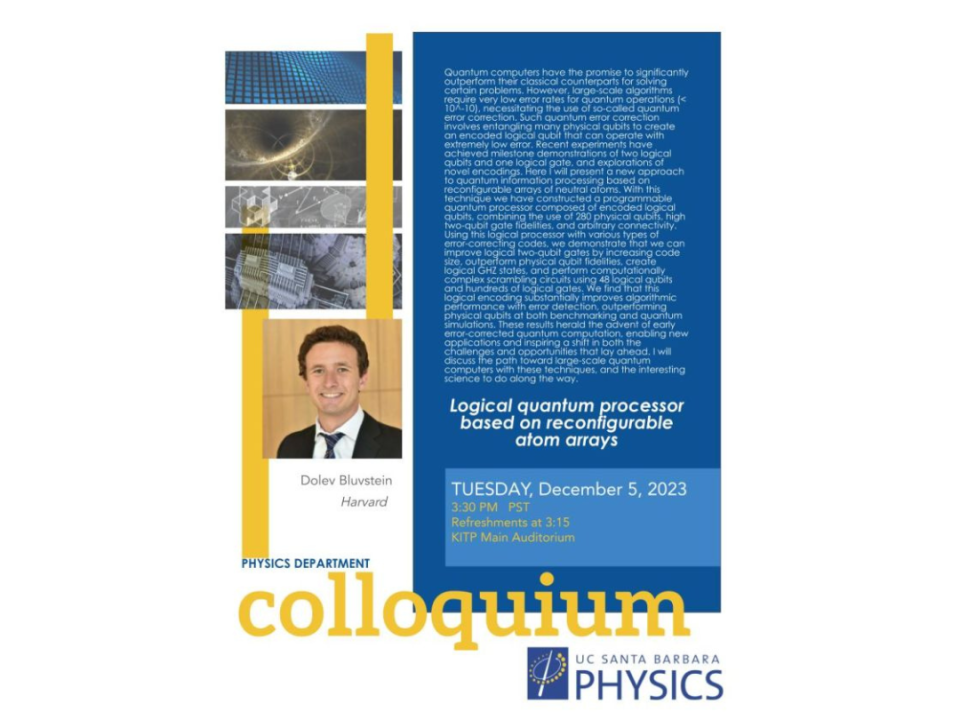
UCSB Physics Colloquium: Logical quantum processor based on reconfigurable atom arrays by Dolev Bluvstein '19 (CCS Physics); Ph.D. Student, Harvard University
Refreshments at 3:15
Undergraduate Q&A session: 4:30-5:00 pm
Quantum computers have the promise to significantly outperform their classical counterparts for solving certain problems. However, large-scale algorithms require very low error rates for quantum operations (< 10^-10), necessitating the use of so-called quantum error correction. Such quantum error correction involves entangling many physical qubits to create an encoded logical qubit that can operate with extremely low error. Recent experiments have achieved milestone demonstrations of two logical qubits and one logical gate, and explorations of novel encodings. Here I will present a new approach to quantum information processing based on reconfigurable arrays of neutral atoms. With this technique we have constructed a programmable quantum processor composed of encoded logical qubits, combining the use of 280 physical qubits, high two-qubit gate fidelities, and arbitrary connectivity. Using this logical processor with various types of error-correcting codes, we demonstrate that we can improve logical two-qubit gates by increasing code size, outperform physical qubit fidelities, create logical GHZ states, and perform computationally complex scrambling circuits using 48 logical qubits and hundreds of logical gates. We find that this logical encoding substantially improves algorithmic performance with error detection, outperforming physical qubits at both benchmarking and quantum simulations. These results herald the advent of early error-corrected quantum computation, enabling new applications and inspiring a shift in both the challenges and opportunities that lay ahead. I will discuss the path toward large-scale quantum computers with these techniques, and the interesting science to do along the way.
––––––––––––––––––
Read more about Dolev Bluvstein '19 (CCS Physics); Ph.D. Student, Harvard University. During his time at CCS, Dolev's accomplishments included attending the 69th Lindau Nobel Laureate Meeting, being named a National Science Foundation Graduate Research Fellow, and a recipient of the highly prestigious Hertz Fellowship.